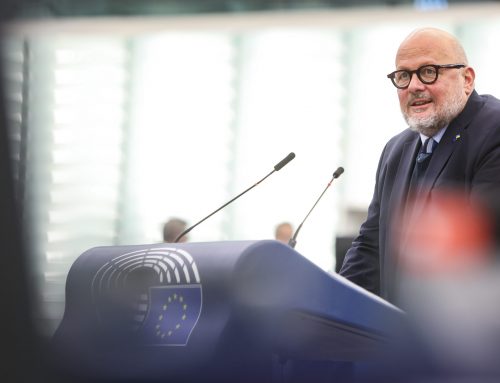[fusion_builder_container admin_label=”Main Article + Image Gallery” hundred_percent=”no” hundred_percent_height=”no” hundred_percent_height_scroll=”no” hundred_percent_height_center_content=”yes” equal_height_columns=”no” menu_anchor=”” hide_on_mobile=”small-visibility,medium-visibility,large-visibility” status=”published” publish_date=”” class=”” id=”” border_size=”” border_color=”” border_style=”solid” margin_top=”-90px” margin_bottom=”” padding_top=”” padding_right=”” padding_bottom=”” padding_left=”” gradient_start_color=”” gradient_end_color=”” gradient_start_position=”0″ gradient_end_position=”100″ gradient_type=”linear” radial_direction=”center” linear_angle=”180″ background_color=”rgba(255,255,255,0)” background_image=”” background_position=”center center” background_repeat=”no-repeat” fade=”no” background_parallax=”none” enable_mobile=”no” parallax_speed=”0.3″ background_blend_mode=”none” video_mp4=”” video_webm=”” video_ogv=”” video_url=”” video_aspect_ratio=”16:9″ video_loop=”yes” video_mute=”yes” video_preview_image=”” filter_hue=”0″ filter_saturation=”100″ filter_brightness=”100″ filter_contrast=”100″ filter_invert=”0″ filter_sepia=”0″ filter_opacity=”100″ filter_blur=”0″ filter_hue_hover=”0″ filter_saturation_hover=”100″ filter_brightness_hover=”100″ filter_contrast_hover=”100″ filter_invert_hover=”0″ filter_sepia_hover=”0″ filter_opacity_hover=”100″ filter_blur_hover=”0″][fusion_builder_row][fusion_builder_column type=”1_6″ layout=”1_1″ background_position=”left top” background_color=”” border_size=”” border_color=”” border_style=”solid” border_position=”all” spacing=”yes” background_image=”” background_repeat=”no-repeat” padding_top=”” padding_right=”” padding_bottom=”” padding_left=”” margin_top=”0px” margin_bottom=”0px” class=”” id=”” animation_type=”” animation_speed=”0.3″ animation_direction=”left” hide_on_mobile=”medium-visibility,large-visibility” center_content=”no” last=”false” min_height=”” hover_type=”none” link=”” element_content=”” first=”true”][/fusion_builder_column][fusion_builder_column type=”2_3″ layout=”2_3″ spacing=”yes” center_content=”no” link=”” target=”_self” min_height=”” hide_on_mobile=”small-visibility,medium-visibility,large-visibility” class=”” id=”” background_image_id=”” hover_type=”none” border_size=”0″ border_color=”” border_style=”solid” border_position=”all” border_radius_top_left=”” border_radius_top_right=”” border_radius_bottom_right=”” border_radius_bottom_left=”” box_shadow=”yes” box_shadow_vertical=”0″ box_shadow_horizontal=”0″ box_shadow_blur=”10″ box_shadow_spread=”0″ box_shadow_color=”rgba(0,0,0,0.1)” box_shadow_style=”” padding_top=”30px” padding_right=”30px” padding_bottom=”30px” padding_left=”30px” margin_top=”” margin_bottom=”25px” background_type=”single” gradient_start_color=”” gradient_end_color=”” gradient_start_position=”0″ gradient_end_position=”100″ gradient_type=”linear” radial_direction=”center” linear_angle=”180″ background_color=”#ffffff” background_image=”” background_position=”left top” background_repeat=”no-repeat” background_blend_mode=”none” animation_type=”” animation_direction=”left” animation_speed=”0.3″ animation_offset=”” filter_type=”regular” filter_hue=”0″ filter_saturation=”100″ filter_brightness=”100″ filter_contrast=”100″ filter_invert=”0″ filter_sepia=”0″ filter_opacity=”100″ filter_blur=”0″ filter_hue_hover=”0″ filter_saturation_hover=”100″ filter_brightness_hover=”100″ filter_contrast_hover=”100″ filter_invert_hover=”0″ filter_sepia_hover=”0″ filter_opacity_hover=”100″ filter_blur_hover=”0″ last=”no”][fusion_imageframe image_id=”2773|full” max_width=”” style_type=”” blur=”” stylecolor=”” hover_type=”none” bordersize=”” bordercolor=”” borderradius=”” align=”none” lightbox=”no” gallery_id=”” lightbox_image=”” lightbox_image_id=”” alt=”” link=”” linktarget=”_self” hide_on_mobile=”small-visibility,medium-visibility,large-visibility” class=”” id=”” animation_type=”” animation_direction=”left” animation_speed=”0.3″ animation_offset=””]https://www.marcangel.lu/wp-content/uploads/2020/11/20201120_EP-107555C_T_PBU_108_RESIZED_M.jpg[/fusion_imageframe][fusion_separator style_type=”none” hide_on_mobile=”small-visibility,medium-visibility,large-visibility” class=”” id=”” sep_color=”” top_margin=”30px” bottom_margin=”” border_size=”” icon=”” icon_circle=”” icon_circle_color=”” width=”” alignment=”center” /][fusion_text columns=”” column_min_width=”” column_spacing=”” rule_style=”default” rule_size=”” rule_color=”” hide_on_mobile=”small-visibility,medium-visibility,large-visibility” class=”” id=”” animation_type=”” animation_direction=”left” animation_speed=”0.3″ animation_offset=””]
Madame la Président, cher Commissaire Reynders, Dear Colleagues,
An important achievement of the European Union has been the development of a robust consumer law acquis, providing rights and empowering consumers to make informed choices.
EU consumer law should largely based on the belief that well informed consumers can make the best choice and that they can trust in effective law enforcement.
Without tackling all problems, I would like to highlight two specific issues.
First of all, the notions of ‘average consumer’ and ‘vulnerable consumer’ which are used in EU law.
I believe that in the digital world, these notions need to be put in question because the consumer is faced with constant monitoring and manipulation. Consumers are in a state of permanent digital vulnerability, or ‘vulnerability by default’.
Therefore, we need a shift away from the “average consumer” to the principle of ‘protection by default and by design’.
This would be a clear and real reaction on the information asymmetries we face.
I completely agree that ‘legislation without effective enforcement puts at risk consumers’ trust and confidence in the single market’.
And here I arrive to my second topic.
According to the Regulation on the air passengers rights’, passengers should be reimbursed in 7 days for cancelled flights. Even if we intend to help airlines to overcome the extraordinary circumstances of the COVID-19 pandemic, also in order to protect their employees, this can only happen without harming consumer rights.
I believe that the Recommendation of the European Commission on the reimbursement for cancelled transport services in the context of the pandemic was necessary.
However, on my written question Commissioner Valean explained that the responsibility of enforcement is linked to the national enforcement bodies and the European Commission considers appropriate actions only in case of evidence of a systematic failure.
There is a clear systematic failure in this case, but we do not see effective reaction to that by the European Commission. Such situations we should avoid if we want to keep consumers’ trust and confidence in the single market.
I hope that these examples also help to understand how we can develop our consumer agenda beyond 2020.
copyright picture:
[/fusion_text][fusion_separator style_type=”none” hide_on_mobile=”small-visibility,medium-visibility,large-visibility” class=”” id=”” sep_color=”” top_margin=”30px” bottom_margin=”” border_size=”” icon=”” icon_circle=”” icon_circle_color=”” width=”” alignment=”center” /][fusion_youtube id=” https://youtu.be/f_KGN4fbtzw ” alignment=”” width=”” height=”” autoplay=”false” api_params=”” hide_on_mobile=”small-visibility,medium-visibility,large-visibility” class=”” css_id=”” /][/fusion_builder_column][fusion_builder_column type=”1_6″ layout=”1_1″ background_position=”left top” background_color=”” border_size=”” border_color=”” border_style=”solid” border_position=”all” spacing=”yes” background_image=”” background_repeat=”no-repeat” padding_top=”” padding_right=”” padding_bottom=”” padding_left=”” margin_top=”0px” margin_bottom=”0px” class=”” id=”” animation_type=”” animation_speed=”0.3″ animation_direction=”left” hide_on_mobile=”medium-visibility,large-visibility” center_content=”no” last=”true” min_height=”” hover_type=”none” link=”” element_content=”” first=”false”][/fusion_builder_column][/fusion_builder_row][/fusion_builder_container]




